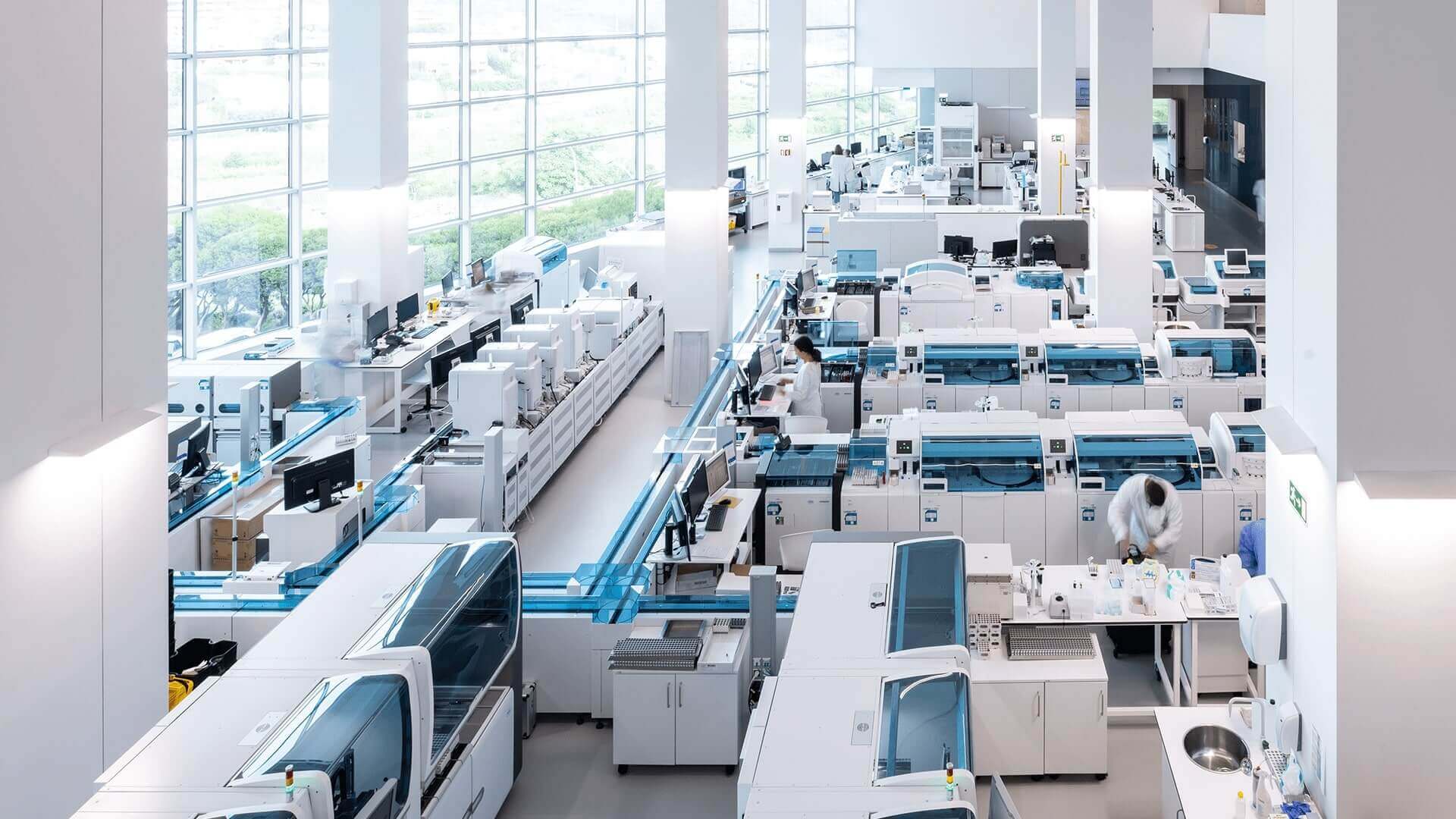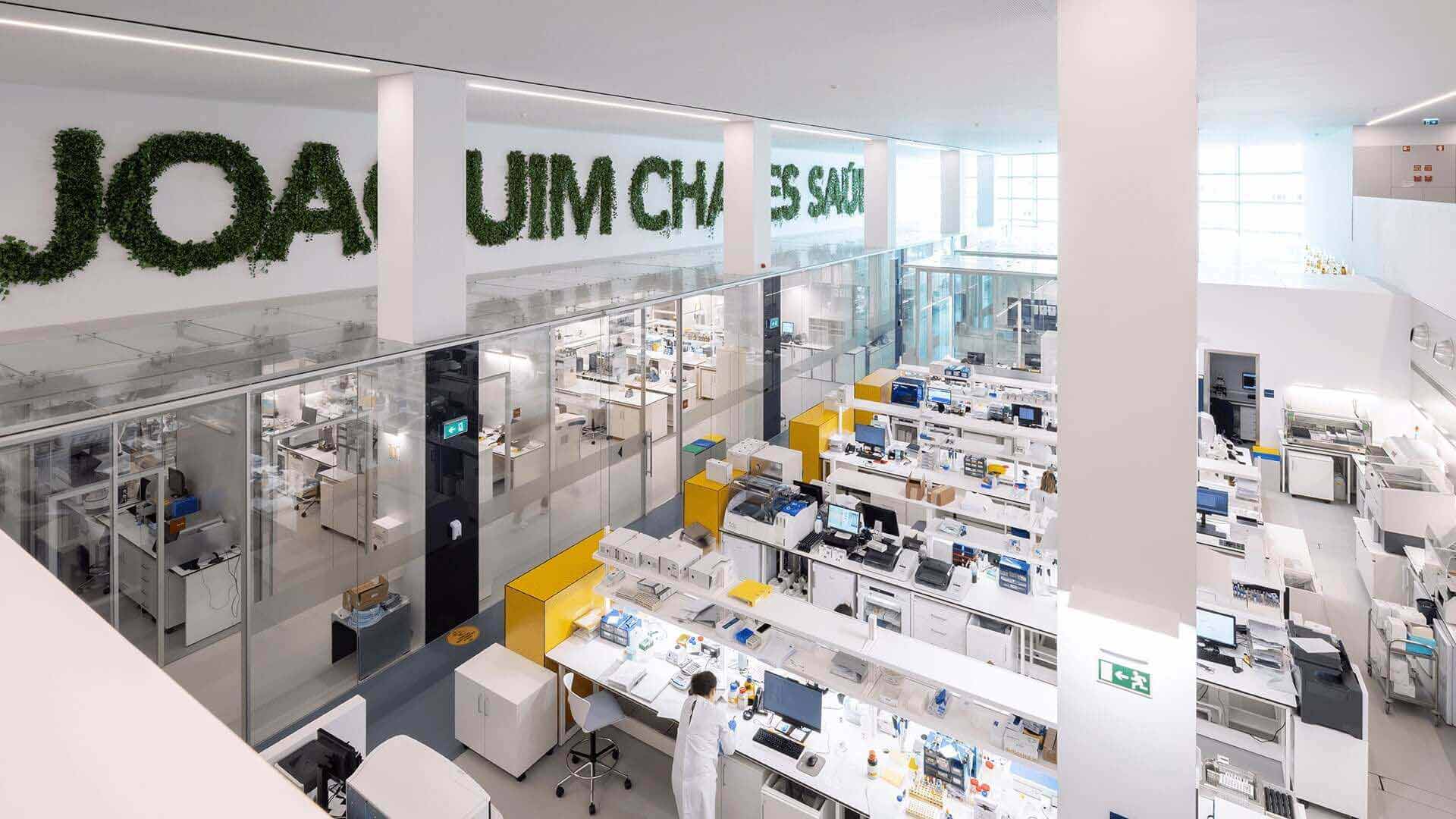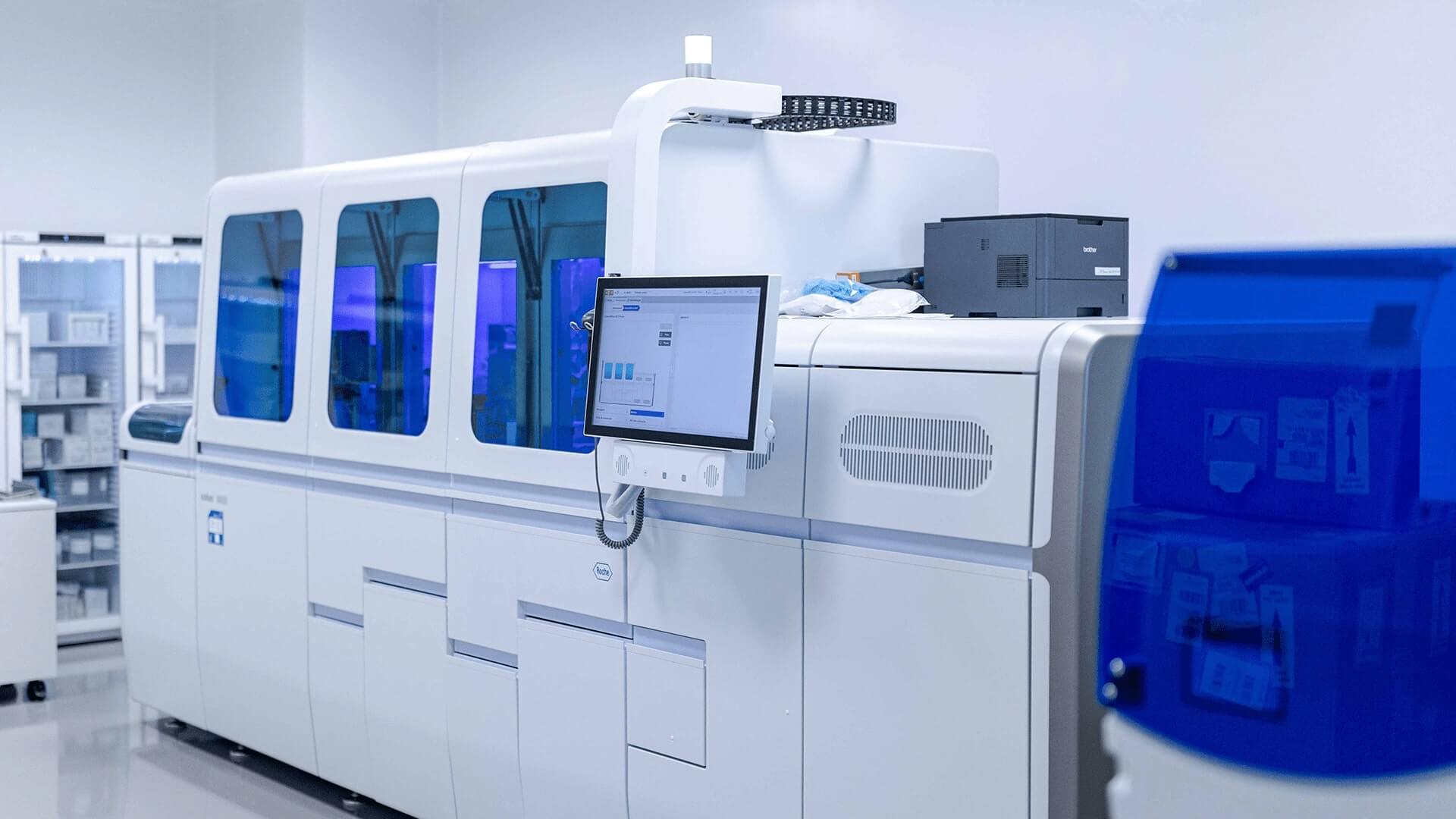Sample Collection Units
Why choose Joaquim Chaves Saúde
Essential health check packs tailored to you

We’ve simplified your tests: choose the pack that best suits you
If you have any questions that need clarifying, please contact us by telephone or schedule a consultation.

Find the nearest Sample Collection Unit
It is our priority to be within reach of the entire Portuguese population, which is why we currently have around 400 Sample Collection Units throughout the national territory.
309 Results
Book your Analyses
Our Laboratories are equipped with the most advanced technology.
A benchmark of quality and precision, based on the excellence of our professionals and the most sophisticated technology.
See our LaboratoriesAnalytical Areas
Find out which analytical areas are available in our Laboratories.
Looking for information about an analysis?
Find out how to prepare and details before scheduling your analysis.
Have questions about Clinical Analysis?
Do I need to be fasting to perform analyses?
How can I know if my analyses require any specific preparation?
Can I perform my analyses at any collection unit?
Can I perform clinical analyses without a medical prescription?
When will I receive the results of my tests?
How can I receive my analyses by e-mail?


